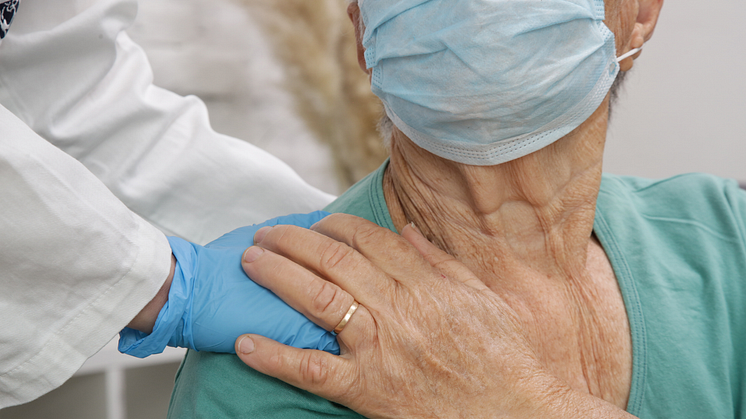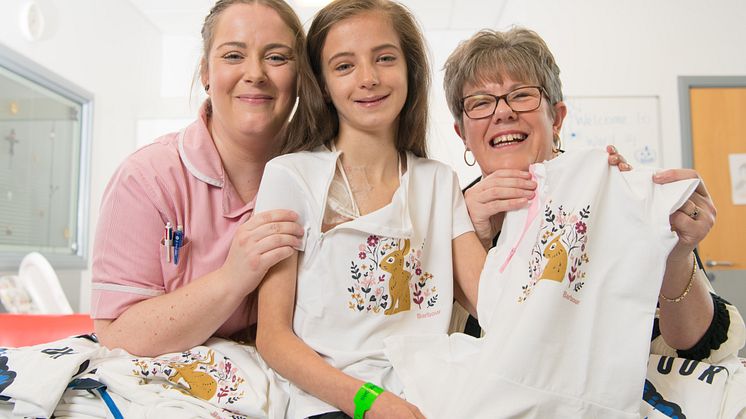
Press release -
Psychological First Aid training could help improve care workers’ wellbeing
A new study has shown that Psychological First Aid, training originally created for people to support others, can help healthcare workers in care homes improve their own mental wellbeing.
First developed by the World Health Organisation, Psychological First Aid (PFA) is the globally recommended training for people, such as healthcare workers, who support others during emergencies.
It offers guidance on delivering psychosocial care in the immediate aftermath of an emergency event.
Although PFA training was originally created for people to support others, scientists from Northumbria University and the University of Highlands and Islands (UHI) have now also identified it as a suitable way of helping care workers look after their own mental health and wellbeing.
As part of the national response to the COVID-19 pandemic, in June 2020 the UK government introduced free to access online PFA training in an effort to support frontline staff, such the 1.8 million people working in care homes across the country.
Evaluating the effectiveness of this initiative, academics at Northumbria and UHI investigated the uptake of PFA training among healthcare workers in UK care homes and assessed its effects on their wellbeing.
Funded by the Royal College of Nursing Foundation, the study was the first of its kind and makes recommendations regarding further implementation of Psychological First Aid.
The researchers found that while the uptake of PFA training was low among healthcare workers - less than 10% of study participants had done the training - those who had undertaken PFA coped better.
The results suggest that PFA training helped in overcoming stress and coping via self-growth and improving relationships with others, but there was a concern around accessibility, which academics say could possibly explain the low uptake of training.
Some research participants described that it helped them cope better when thinking of giving up their job and promoted resilience, with one person commenting: “(PFA) has helped me cope better, it was a position I was thinking of giving up at one time and now I have the strength to carry on.”
Others described how it helped support them in their experiences of bereavement to overcome the trauma of the pandemic: “I found it (PFA) useful as it helped me cope with bereavement as well as the experience of seeing relatives affected by COVID-19.” Another participant went as far as to say that PFA training “should be made compulsory for all staff especially in nursing and care homes during the pandemic or not.”
Dr Mariyana Schoultz, the project lead and Associate Professor in Mental Health in Northumbria’s Department of Nursing, Midwifery and Health, said: “Findings suggest that PFA training has the potential to: strengthen resilience for staff in health and social care; promote anti-stigma messages and normalise help seeking behaviour; PFA holds the potential to minimise the risk of developing more serious psychological problems such as Post-Traumatic Stress Disorder (PTSD). But we need more research in this area.
“We therefore recommend that consideration be given to funding an integrated programme of research and development to further develop, implement, and evaluate a co-produced iteration of PFA for use in the UK care home sector and beyond.”
Deepa Korea, Director of the RCN Foundation, said “Staff working in social care during the pandemic faced significant pressures which inevitably had an impact on their own mental health and emotional wellbeing. That’s why I am delighted that the RCN Foundation was able to commission this important study which adds to the body of evidence about the practical ways in which we can support health and social care staff.”
The study, ‘Uptake and Effects of Psychological First Aid Training For Healthcare Workers’ Wellbeing in Nursing Homes: A UK National Survey’ has been published in scientific journal PLOS One.
Topics
Categories
Northumbria is a research-intensive modern university with a global reputation for academic excellence. Find out more about us at www.northumbria.ac.uk --- Please contact our Media and Communications team at media.communications@northumbria.ac.uk with any media enquiries or interview requests ---








